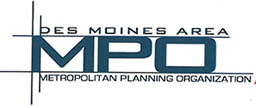One of the challenges we encounter as we undertake The Tomorrow Plan is that the notion of “community sustainability” can seem theoretical, nebulous, or esoteric. It can seem as though community sustainability is a high-level aspiration that is difficult to define or implement on a local scale. Indeed, the Steering Committee for The Tomorrow Plan struggled with defining what community sustainability means in Greater Des Moines. Fortunately, there are many concrete actions individuals, neighborhoods, and communities can take to further sustainability concepts – and local resources to help us along the way.
Entire books have been written about taking action to promote sustainability at the local level, so I am not going to try to fit all of them into one blog entry. Rather, I’d like to encourage readers of the TPX to think about the actions they can take within their particular areas of the metro. One of the first steps is to take a look at your home, your neighborhood, your community and ask a few questions. They may include:
For your home:
- Have you considered the energy efficiency of your home – its insulation, appliances, envelope, mechanicals, and other aspects?
- Do you take proactive steps to reduce water consumption and recycle discarded materials?
- Have you thought about the impacts of the fertilizer you might apply to your lawn or have you installed rain barrels to collect runoff from your roof for use in your garden?
For your neighborhood:
- Can pedestrians, bicyclists, and persons with disabilities easily and safely access homes, stores, and public spaces?
- Are trees planted near streets and pedestrian areas, providing shade, calming traffic, and filtering pollutants?
- Are transit stops located at places that are convenient, inviting, and shielded from inclement weather?
For your community:
- Does your community support historic preservation and other efforts to encourage rehabilitation of existing structures?
- Are new developments encouraged to mix residential and commercial areas, with the goal of creating communities where residents can walk to work, shopping, and entertainment?
- Does your community’s development policies incorporate standards for holding rainfall where it falls, emphasizing filtration over piping stormwater away?
Okay – so many of those “community questions” are getting a bit high-level and are asking for systemic reform. But most of the questions posed above – and many others that were not included – can be answered by taking the time to observe and assess your community. Once you have identified items that you would like to see improved, you can devise a strategy for action. Perhaps you are going to work with Trees Forever to improve the tree canopy on your block, or call your local utility to schedule an energy audit for your home, or join your local arts commission to ensure that art is incorporated in public improvements in your neighborhood.
Fortunately, we have organizations in Greater Des Moines that can help you to identify resources to make your life and community more sustainable. Two of those premier organizations are the Center on Sustainable Communities and Urban Ambassadors. Take a moment to peruse their resources and then identify one action that you can take in the next week to make our world a little more sustainable.
 Aaron Todd is a Legislative Analyst at Iowa Legislative Services Agency and helped draft Iowa’s Smart Planning legislation. He currently sits on The Tomorrow Plan’s Steering Committee.
Aaron Todd is a Legislative Analyst at Iowa Legislative Services Agency and helped draft Iowa’s Smart Planning legislation. He currently sits on The Tomorrow Plan’s Steering Committee.



